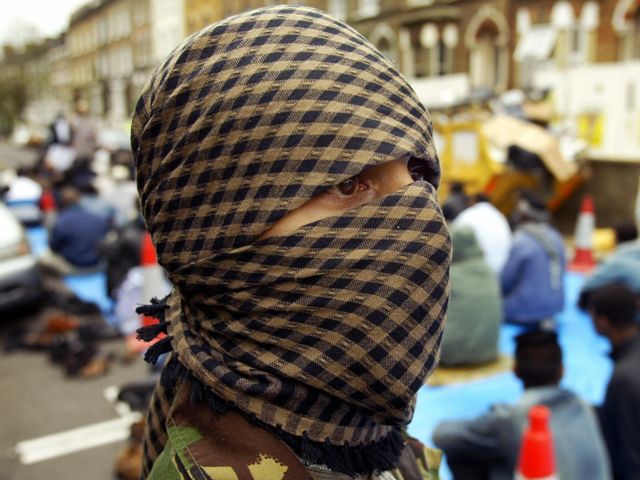The former head of Britain’s Secret Intelligence Service has admitted that Muslim leaders in the UK have been “reluctant” to tackle the threat of Islamic extremism in their midst.
Amid heightened concerns over the threat of Islamist terrorism in the wake of the fall of Afghanistan to the Taliban following President Biden’s bungled withdrawal, former MI6 chief Sir Richard Dearlove has called on Muslims in Britain to help root out extremist elements within their communities.
Dearlove, who was the top spy at Britain’s CIA equivalent from 1999 to 2004, said that in the wake of the Afghan blunder, the UK will need to be more vigilant in combatting extremism but said that it is essential for local Islamic leaders to step up.
“If you are looking at Islamist extremism, the Islamic community should be dealing with it themselves and there is a reluctance for them to do so,” Sir Richard told The Telegraph.
“The structure of the community is such that some of their leaders are self-appointed and they are the wrong people for us to do dialogue with.
“What you don’t want it to be is Christians telling Muslims what to do. It should be Muslims telling Muslims what to do.”
The former MI6 chief said that the UK needs to be “very diligent” in the coming months, as young Muslims in Britain may be inspired by the Taliban victory.
“It’s a danger for any country with a large indigenous Islamic community that there are very small bits of it which might be susceptible to radicalisation,” he said.
“Generally I think our communities are better now than they were at policing themselves but they are certainly not perfect at it.”
“You have to depend on the local communities to know what their young people are doing. If a kid goes off to visit relatives in Pakistan it becomes a family matter. It’s important that individuals are aware of what their young people are up to.”
Over 100 Convicted Terrorists Set for Early Release in the UK https://t.co/G6T4kFAxOJ
— Breitbart London (@BreitbartLondon) November 9, 2020
The warnings from Dearlove come amid increasing concerns over a resurgent terror threat in the United Kingdom.
Last week, Colonel Richard Kemp, the former commander of British troops in Afghanistan, warned that Britain is facing “the greatest danger from terrorism since Islamic State at its height”.
Britain’s Armed Forces Minister James Heappey added that jihadis were “trying to take advantage” of the collapse of Afghanistan to enter into the UK.
Prime Minister Boris Johnson’s government raised eyebrows when it announced that immigration officials would not be requiring passports or other forms of identification for supposed Afghan asylum seekers, potentially clearing the way for terrorists to infiltrate the country.
British Border Force has already admitted that some of those who were evacuated from Kabul have either presented forged papers or none at all but that they failed to prevent them from entering the country for fear of sparking an “argument”.
While the UK is bracing for a new wave of potential terrorists amid the ranks of fleeing asylum seekers, there is already a large population of suspected jihadis within Britain.
Last year, it was reported that security services were aware of at least 43,000 terrorist suspects in the country, nearly double the amount previously disclosed to the public.
Despite failures of the UK’s deradicalisation programmes, Sir Richard Dearlove said that there are examples of success within the Muslim world.
“One of the pioneers in this field, who were very successful and very influential, was Singapore,” he said.
“The model the Singaporeans developed was used quite extensively and followed by other countries with large Muslim components and even countries which were majority Muslim.
“They used their own religious leaders to run their deradicalisation programmes. It’s a model which works.”
MI5 Aware of 43,000 Terrorist Suspects, Not 23,000 as Previously Claimed https://t.co/ZwxgYPN7sQ
— Breitbart London (@BreitbartLondon) April 14, 2020
Follow Kurt Zindulka on Twitter here @KurtZindulka

COMMENTS
Please let us know if you're having issues with commenting.